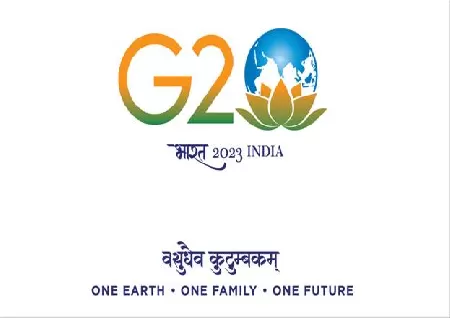Towards universal social security, Priorities for G20

At least four billion people worldwide do not currently have access to social security, making them exposed to unforeseen economic, social, and environmental changes. This study looks at social security in the G20 economies, which account for 63 percent of the world's population. Between universal coverage and actual coverage, as well as between countries in the Global North and those in the Global South, it identifies disparities in social security spending in these nations. It is essential to safeguard social security's financial viability through various means in order to reduce these discrepancies. India, the G20's current presidency,using the lessons it has gained from its own social protection programmes, may direct the grouping in developing sustainable finance for social security. Social security is broadly described by the International Labour Organization (ILO) as "protection that a society provides to individuals and households to ensure access to health care and to guarantee income security, particularly in cases of old age, unemployment, sickness, invalidity, work injury, maternity, or loss of a breadwinner." As a result, the word "social security" refers to a wide range of benefits, including insurance, pensions, and unemployment and disability payments. With the use of these tools, everyone will be able to obtain health care and a basic level of income, and safety nets will be created for times of disaster. The World Bank and the International Labor Organization.
The Sustainable Development Goals (SDG) 2030 Agenda's worldwide commitment to "social protection for all" was enshrined in the Universal Social Protection (USP) 2030 Call to Action, which was jointly accepted by organisations, governments, and international partners. Although social protection has always been seen as a governmental obligation, governments have worked hard to diversify their systems to accommodate different social security funding options. These processes aim to make the most of the many capital assets they have access to, including human, physical, social, and environmental capital. The "sustainomics" concept acknowledges social security's crucial contribution to the accomplishment of sustainable development objectives. Through a transdisciplinary integrative approach, this meta-framework permits the sustainability element of development while balancing the economic, social, and and the development's impact on the environment. Social security is one of the three pillars of sustainable economics. While social security promotes inclusive growth for economic advancement, it also depends on societal values such as empowerment, peace, and sound institutions, which results in the expansion of human capital. Again, it goes without saying that ecosystem services play a significant role in supplying disadvantaged socioeconomic strata with chances for a living; this topic will be covered in more detail in the paper's later parts.
Around the world, comprehensive social protection systems are implemented using a wide range of instruments. These must be created while taking into account the requirements, weaknesses, and contextual realities of diverse societal segments. Social and economic vulnerability might differ.across factors such gender, social groups, socioeconomic position, age, the percentage of people who are in the labour force, and the type of job. Everywhere, social protection works to promote the first Sustainable Development Goal (SDG), "no poverty," even though diverse strategies are employed. SDG 1 Target 1.3 is concerned with the establishment of all-inclusive national social protection systems. It has been demonstrated that ensuring adequate social security contributes greatly to reducing poverty, promoting economic growth, and achieving other associated SDGs.The pandemic was a disaster that emphasised the need for proper social security coverage. Significant populations were left without their normal sources of income or any other means of support following the epidemic and its economic repercussions, and they lacked social safety nets to absorb the shocks.The epidemic has wreaked the most havoc on individuals with the lowest incomes and social security across all nations.
The worldwide population's poorest 40 percent lost 6.7% of their typical salaries, while the wealthiest 40 percent only lost 2.8%. This reduction in income emphasises even more the effects of such an incident on people who lack appropriate social protection. In fact, the growing social protection gap between industrialised countries and emerging economies has also contributed to The G20, which brings together some of the biggest advanced and emerging economies worldwide, exemplifies this. The need to maintain the demand-supply dynamics of product and factor markets throughout the G20 nations during the pandemic necessitated a discernible improvement in social protection coverage, but this also resulted in widening finance deficits for social security. The epidemic made existing obstacles to comprehensive social protection—such as economic informality, a limited tax base, illicit financial flows, profit shifting, and fiscal space considerations -even more difficult for the growing G20 nations.
While highlighting the importance of providing social protection in a sufficient manner, this study focuses on how well the G20 economies are covered. After all, 63% of the world's population resides in the G20, which can thus collectively offer universal social safety to the majority. The parts look at the disparities and gaps in social security financing that exist between the G20's advanced and emerging economies and offer solutions to make sure social protection systems throughout the world are financially sustainable. India may play a key role in setting the G20 Development Working Group's (DWG) agenda for social security concerns, particularly in the area of reducing poverty, through its G20 leadership during the coming year. Keeping an eye on the USP 2030's top priorities, the In particular for the world's growing, developing, and underdeveloped countries, the G20 may collaborate to create novel models that cater to financial sustainability and the gradual universality of social safety systems.
Related queries to this article
- G20
- G20 Summit
- social security
- G20 economies
- sustainable finance
- Sustainable Development Goals
- SDG 2030 Agenda
- International Labour Organization
- Universal Social Protection
Read more articles and stories on InstaSity Latest News.





